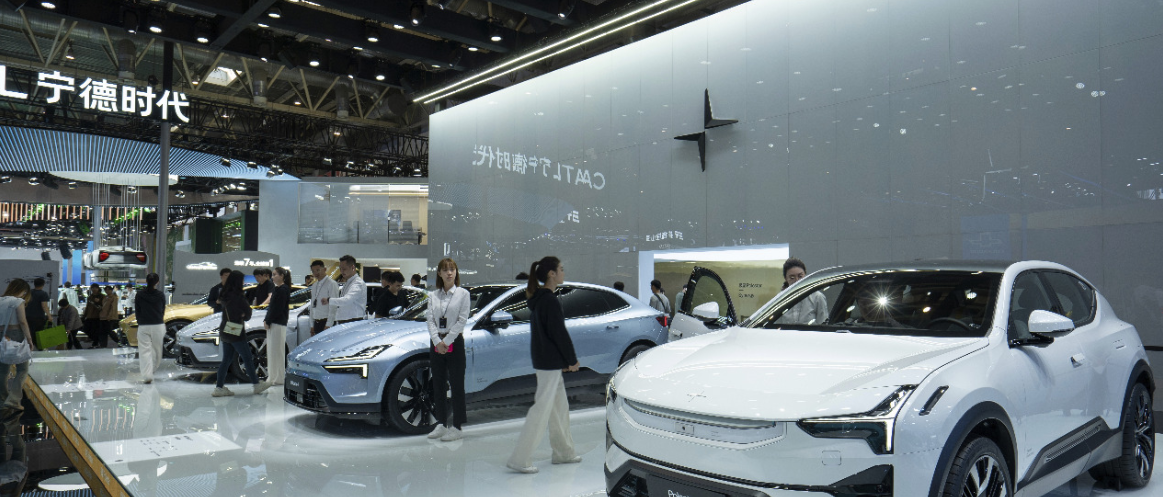China and EVs: The “Involutionary” Dilemma

Instead of being a story of evolution and technological development, the story of China and EVs is one of “involution.”
The Chinese economy suffers from an excess of competition. Too many products are chasing too few buyers, which is a recipe for plunging prices and cratering profits. Pushing the excess abroad is provoking trade partners to impose tariff barriers.
Beijing’s proposed solution to this dilemma is consolidation by fiat. Fewer companies in an industry, the central government theorizes, will restore balance by reducing output. Whether such consolidation will proceed, however, is uncertain because it directly contradicts core tenets of the Chinese economic model. And, if it does, it’s not clear that it would leave the best companies standing. Yet, the alternative approach — letting the market do the culling — is equally problematic.

“Involution,” the term China’s economic planners have adopted to characterize the situation, was popularized in the 1960s by anthropologist Clifford Geertz. He applied it to oppressed farmers in colonial Indonesia, who worked ever harder without reaping a reward. Before the Chinese term acquired its present connotation, it was used to describe the experiences of exhausted students and tech workers who were “locked in competition that one ultimately knows is meaningless.”
The electric vehicle (EV) industry is involution’s poster child today. China has adopted EVs more quickly than any other major country. The industry is a pillar of President Xi Jinping’s drive for “new quality productive forces.” Lower-level officials responded to the president’s directive by lavishly funding local champions. Some 500 firms entered the EV business at its peak a few years ago.
The brutal competition that resulted has winnowed the field and has driven companies like BYD, Geely, and Nio to excel. But involution continues—a vicious cycle of price cuts, profit drops, and excess capacity. The Rhodium Group reports that an eleven percent growth in the volume of Chinese car sales in the first half of this year produced only 0.8% growth in their value.
Exports have jumped, too, climbing eighty percent in 2023. But backlash abroad is already slowing the pace of growth, which dropped to just seven percent last year. The European Union, waking up to an existential threat to its biggest manufacturing industry, imposed tariffs on Chinese EVs. Emerging markets like Thailand and Brazil, where EV imports have soared, are using trade restrictions to drive Chinese investment in local production as a substitute.
Further consolidation among Chinese EV makers seems inevitable. One leading industry consultant forecasts that only fifteen companies will survive. But provincial and local officials are loath to write off their investments and accept the layoffs that would ensue. The central government, too, continues to keep zombie firms in business by subsidizing demand as it pursues environmental and geopolitical goals.
President Xi’s anti-involution campaign, trumpeted loudly by official organs, has yet to fully grapple with these deeply embedded obstacles. Perhaps the most innovative and productive firms will ultimately win out. But the path to such an outcome will likely be long and winding. Some zombies may survive due to their political clout or bureaucratic bungling.
In a capitalist economy, consumers would do the culling. Firms that couldn’t sell enough to support themselves would disappear or would be gobbled up by stronger competitors. This process of entry and consolidation, as the economist Joseph Schumpeter famously described, is particularly common as new industries like EVs mature.
Chinese consumers do have some say in “anti-involution.” But their purchasing decisions are distorted by subsidies and may be overridden by bureaucratic politics. The Chinese party-state’s foremost imperative is maintaining control. Fully empowering consumers puts that at risk.
Involution is not new nor confined to EVs. Solar panel manufacturing has been locked in this vicious cycle for more than a decade. The battery market is glutted, too. At the macro level, involution-driven deflation may be setting in, with factory gate prices falling for a reported thirty-three straight months. Meanwhile, exports continue to surge, driving a trade surplus that may surpass $1 trillion this year, despite dropping prices.
For countries that do not have and do not aspire to manufacture EVs, solar panels, or batteries, the export surge is a silver lining of China’s involution. For others, including the United States, Japan, Korea, and much of Europe, it will likely further inflame tensions with China. For China itself, involution may be an insoluble dilemma, the sharpest manifestation of an internally incoherent political-economic model.
- Questions and Answers
- Opinion
- Motivational and Inspiring Story
- Technology
- Live and Let live
- Focus
- Geopolitics
- Military-Arms/Equipment
- Güvenlik
- Economy
- Beasts of Nations
- Machine Tools-The “Mother Industry”
- Art
- Causes
- Crafts
- Dance
- Drinks
- Film/Movie
- Fitness
- Food
- Oyunlar
- Gardening
- Health
- Home
- Literature
- Music
- Networking
- Other
- Party
- Religion
- Shopping
- Sports
- Theater
- Health and Wellness
- News
- Culture

